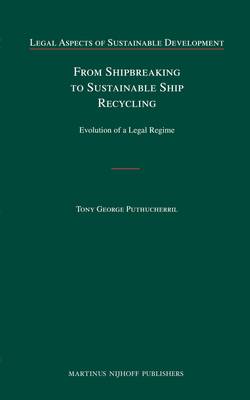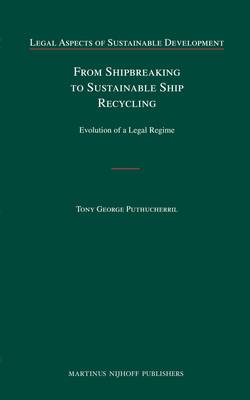
- Afhalen na 1 uur in een winkel met voorraad
- Gratis thuislevering in België vanaf € 30
- Ruim aanbod met 7 miljoen producten
- Afhalen na 1 uur in een winkel met voorraad
- Gratis thuislevering in België vanaf € 30
- Ruim aanbod met 7 miljoen producten
Zoeken
From Shipbreaking to Sustainable Ship Recycling
Evolution of a Legal Regime
Tony George Puthucherril
€ 256,45
+ 512 punten
Omschrijving
Ship recycling conserves resources, employs an unskilled workforce, and removes outdated tonnage. Operating mainly on the Indian subcontinent, this 'primitive' industry often results in loss of human life and pollution of the marine environment. Despite moral indignation, the international community has struggled to manage this industry and only recently completed the IMO International Convention for the Safe and Environmentally Sound Recycling of Ships. Using the Indian experience on shipbreaking as a case study, this book assesses the strengths and weaknesses of the Convention. The author argues that the Convention may not succeed because it fails to strike a balance between environmental protection, human rights, and commercial realities. The book offers recommendations for a holistic and integrated approach to a sustainable ship recycling industry.
Specificaties
Betrokkenen
- Auteur(s):
- Uitgeverij:
Inhoud
- Aantal bladzijden:
- 308
- Taal:
- Engels
- Reeks:
- Reeksnummer:
- nr. 5
Eigenschappen
- Productcode (EAN):
- 9789004174917
- Verschijningsdatum:
- 8/03/2010
- Uitvoering:
- Paperback
- Formaat:
- Trade paperback (VS)
- Afmetingen:
- 165 mm x 244 mm
- Gewicht:
- 657 g

Alleen bij Standaard Boekhandel
+ 512 punten op je klantenkaart van Standaard Boekhandel
Beoordelingen
We publiceren alleen reviews die voldoen aan de voorwaarden voor reviews. Bekijk onze voorwaarden voor reviews.











